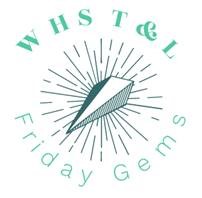This Friday Gem comes from Richard Finch, who thinks about the academic and pastoral benefits to metacognition as part of the EPQ process. Metacognition gives students the flexibility to take control. This boosts confidence and reduces anxiety, vital in the time of a pandemic.

Metacognition is vital to the EPQ
The independent approach students must take to complete the EPQ (Extended Project Qualification) is daunting for most. Students are guided by a supervisor who is there to act as a sounding board for ideas but the student must ultimately decide for themselves how to research, compile and produce a 5000 word report on an area of personal interest. Self-reflective thinking must be documented at these key milestones and forms an important part of the assessment. Developing new skills is also a key element of the qualification and again, girls are actively encouraged to reflect and document which are appropriate for their particular project.
Metacognitive Planning Tools are empowering and are a confidence boost
One student reflects here on a new tool she was encouraged to use to organise her time. “Another hurdle for me was planning out when to do my research, having heard that Gantt-chart was an indispensable tool and thinking therefore that I absolutely had to use it. I tried to use it for my initial title with limited success, and then thought I had improved and even mastered it for my second. However, I was eventually forced to admit that Gantt-chart was not for me, and that I was far better off sticking to a simple bullet point list of dates and deadlines. Therefore, I did not acquire the skill of using Gantt-chart, but I did learn that sometimes it is just much more effective to stick to what I know works and have confidence in my own methods, rather than thinking that because a resource worked for someone else it will work for me.” Effective self-reflection is empowering for EPQ students. Everyone learns differently and those, like the student quoted above, that can assess how effective a new method or skill will be for them better able to overcome challenges. The alternative is that students blindly follow a suggested method without questioning or adapting it to what works for them. Achieving more flexible thinking and skill in choosing how to apply the most appropriate method is a real confidence boost for many girls.
Metacognition to help face pandemic related challenges.
A student commented in their EPQ that “I have encountered numerous setbacks during my project which mostly related to the COVID-19 pandemic which severely curtailed my access to the hospital. I have learned not to lose heart when setbacks occur and to continually try to find ways around problems in order to complete tasks. I have appreciated that being flexible is critical to this.” She went on to document how she intends to adapt her research to complete the project. Documenting the change of approach reduced anxiety and motivated her to take practical steps to move towards completing her project.
Self-reflection is a skill that is overtly assessed on the EPQ. This motivates students to engage with the way they think about learning and assess their own meta-cognitive development. Documenting self-reflection and incorporating it into the assessment criteria is something that could be beneficial to learning practice at all levels.

